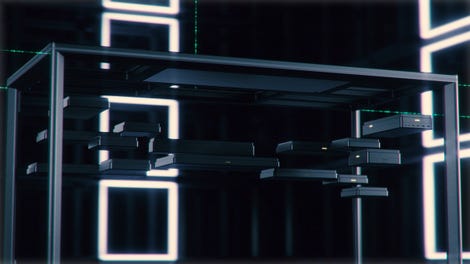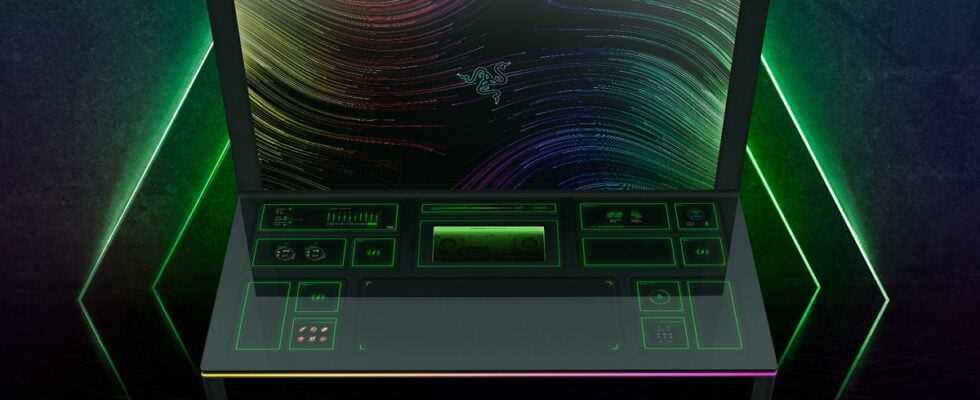It’s a tradition at CES for Razer to announce a standout concept. To which he gives a traditionally feminine name. Previous examples include Project Linda, Project Christine, and Project Hazel.
The model presented this year takes up the modular PC concept of Project Christine, but with a touch of furniture.
Called Project Sophia, Razer’s idea is that rather than creating a modular PC that sits on your desk, it becomes part of your office. The concept begins with a desk with a glass top, which can magnetically connect to a transparent frame located under the top.
A PC IN the office
This chassis can contain up to 13 different interchangeable modules. And that ranges from CPUs and GPUs to additional displays and touchscreens. Among these modules, some are more features of very modern desks than of a traditional computer. A wireless charging module and even a cup warmer, for example.
According to Razer, the Sophia project aims to facilitate the transition from one computing task to another. Rather than moving from your workstation to your gaming PC, you can simply add modules to your desktop/system.
While the company refers to work-related functions, the LED lights built into the desk can be synchronized with the company’s Chroma RGB system. So yes, gamers are still Razer’s target audience.
An innovation that will never be marketed
Otherwise, the 65-inch OLED screen included in the desktop might seem hugely oversized for working on emails or Microsoft Word.

This view Minority Report of a desktop PC has very little chance of being marketed. The cost would presumably be astronomical, although this would not necessarily be a deterrent for the wealthiest players. There’s also the question of whether the value of modularity is as great as Razer offers.
While some modules, such as specialized input devices, can be swapped out as needed, is it really necessary to swap components if, say, you work day and play night? Especially considering the role of the modern GPU in supporting all kinds of applications, why not create the best configuration possible and use what you need during the day?
But by getting too deep into practicality, you lose some of the appeal of Razer’s ideas. The vision of an IT future that it showcases in concepts like Project Sophia is the most important thing because it can spur improvements on a more day-to-day basis.
The idea of merging the computer with your office furniture could lead to interesting work in the field of desktop computers and desks. Importantly, none of these forward-thinking ideas hurt the bottom line for Razer, which cites strong customer loyalty as one of its success factors.
A fidelity no doubt fueled in part by the company’s spirit of anticipation, as manifested in concepts like Project Sophia.
Source: ZDNet.com
